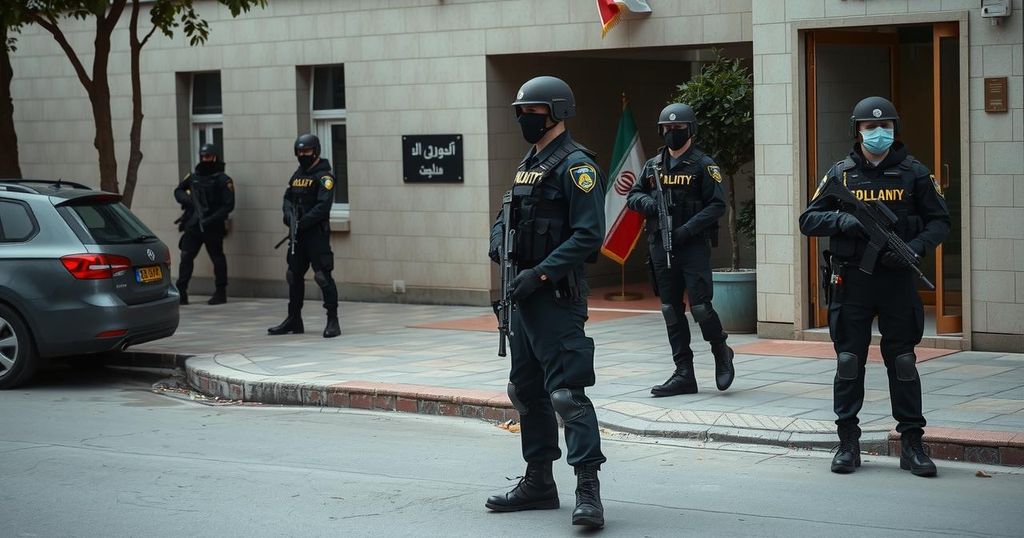Assad’s Departure Sparks Unrest as Gunmen Storm Iranian Embassy in Damascus

Unknown gunmen attacked the Iranian embassy in Damascus amid reports that President Bashar Assad fled the country, leaving instructions for a transfer of power. The Islamist group Hayat Tahrir al-Sham (HTS) has gained control following the government’s collapse, raising concerns over future governance in Syria.
On Sunday, a group of unidentified gunmen invaded the Iranian embassy in Damascus following the Islamist rebels’ takeover of the city, effectively toppling the government of Bashar Assad. Reports indicate that Assad fled the country after issuing “instructions” for a peaceful transfer of power, according to Russia’s Foreign Ministry. Iranian state media asserted that the gunmen were not connected to the broader rebel coalition led by Hayat Tahrir al-Sham (HTS), which has been at the forefront of recent military advancements.
Amid reports of the embattled leader’s escape, a video broadcast on Syrian state television claimed that Assad had been overthrown and that all inmates had been released. Syrian Prime Minister Mohammad Ghazi al-Jalali confirmed on Al-Arabiyya network that he was unaware of Assad’s current location after communication links were severed.
In light of the situation, Russian officials noted that the exit of Assad followed discussions with rebelling factions, and they clarified that the Kremlin was not directly facilitating these negotiations. As news broke of Assad’s departure, jubilant crowds took to the streets of Damascus, expressing their relief and excitement through chants and celebratory gunfire.
The civil war in Syria has reached a critical juncture after nearly fourteen years of conflict, marking a significant shift in regional dynamics and the potential end of over fifty years of Assad family rule. Reports suggest that HTS aims to implant a strict Islamist regime across Syria, inspired by the governance practices seen in the Taliban. Abu Mohammed al-Golani, the group’s leader, advocated against indiscriminate firing in celebrations to ensure public order. Furthermore, he assured that public institutions would be managed by the prime minister until a formal transition occurred.
The situation in Syria has been characterized by an intense civil conflict that began in 2011, sparking a power struggle primarily between the Assad regime and various rebel factions, including Islamist groups like Hayat Tahrir al-Sham. The conflict has resulted in significant loss of life, displacement of civilians, and complex geopolitical ramifications involving multiple nations. Russia’s involvement has been particularly noteworthy as it has supported Assad’s government, which has faced ongoing challenges from militant forces. The recent storming of the Iranian embassy highlights not only the instability of the current Assad regime but also the shifting allegiances and the future of governance in Syria as rebel groups gain ground.
The recent events in Syria, namely the storming of the Iranian embassy and the reported flight of President Bashar Assad, signify a pivotal moment in the ongoing civil strife. As Islamist factions, particularly HTS, make substantial gains, their vision for Syria introduces fears of a potential theocratic regime. The implications of Assad’s departure resonate not only within Syria but also across the Middle East, prompting shifts that will shape regional politics for years to come.
Original Source: www.foxnews.com






